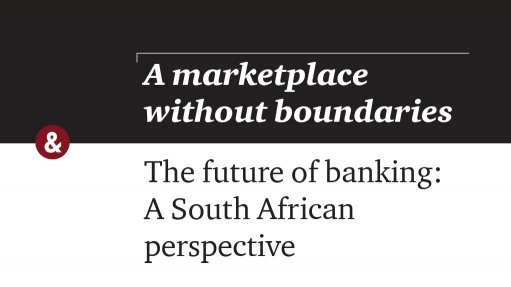
outh Africa’s banking industry is rapidly evolving in response to regulatory changes, economic pressures, technological advances and innovation in digital. “The evolution of technology and increased customer expectations combined with the emergence of disruptive competitors, is placing significant pressure on the banking industry to implement new strategies to remain relevant in the future,” says Jorge Camarate, Strategy& partner and partner in PwC’s financial services division.
The growth of unexpected players emerging in the financial services industry has created what has been called a ‘marketplace without boundaries’. Non-traditional players are increasingly exploring new opportunities, enabling them to challenge incumbents and continually change the state of financial services in South Africa.
In an analysis by PwC Strategy& - ‘The future of Banking: A South African perspective’ - we look at how South African banks can contribute to shaping the future, consider and rethink their business models and processes, and reinvent the organisation.
Digital solutions, low-cost operating models and supply-chain integration have moved to the top of the business agenda, with non-traditional players pursuing various aspects of these trends, enabling them to provide their customers with in-house banking solutions.
In response to the growing threat in the retail banking industry, the ‘four universal banks’ (Barclays Africa, Standard Bank, Nedbank and FirstRand) are progressively finding new ways to enable them to stay relevant in the market.
Unlike their challengers, the four universal banks have the principal advantage of being able to serve a sizeable share of South Africa’s retail business and corporate banking customers. In order to maintain this advantage, they will need to develop strong data analytics capabilities and develop new solutions to better meet the needs of their customers, as well as find efficiencies in their legacy businesses to fund the large-scale transformation effort required.
Report by PwC